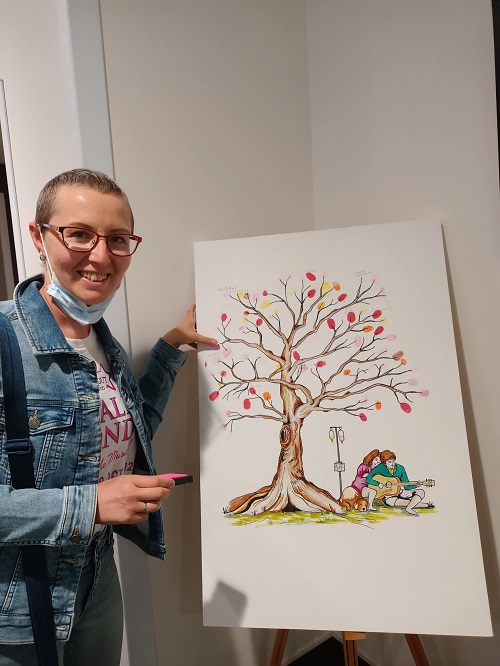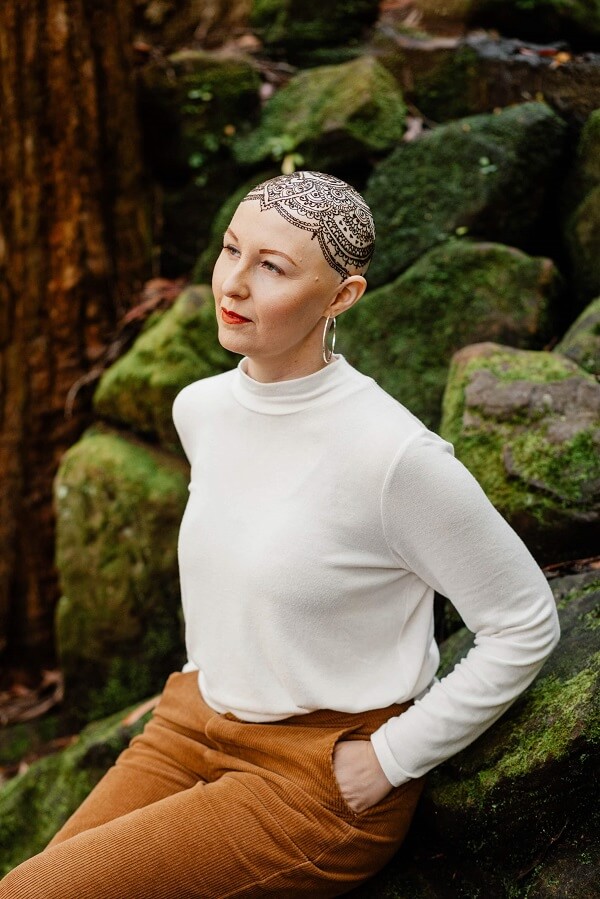
Maria had just celebrated her 40th birthday in November 2021 when her husband felt a lump in her left breast. She immediately went to her GP, where she was referred for a mammogram, ultrasound, and biopsy, which eventually led to a diagnosis of breast cancer.
While a cancer diagnosis and treatment can be challenging, Maria found the experience positive, which she credits with having access to plenty of information, from both her medical team and organisations like Cancer Council.
Now, Maria’s sharing her story to reduce the stigma around cancer and help others going through treatment get the information they need.
Sharing her treatment story to help others
Maria underwent a single mastectomy, but later found that the cancer had spread to her lymph nodes. She had a second surgery and started chemotherapy and radiation treatment.
Maria remembers feeling anxious about treatment, but she was determined to face whatever lay ahead – and having the right information helped her do just that.
“I received a wealth of information about my condition and the steps that needed to be taken,” she says. “I think many people are scared about having cancer treatment. But you can do a lot of things to make it easier to manage.”
“I was told that moving around is essential, it really helps, which is why I kept working and doing normal things in between chemo. If you lie in bed, it only becomes harder to get back up again.”
Keeping a sense of self throughout treatment

Although Maria had come to terms with losing her hair, it was important to her not to lose her sense of self. She began researching henna crowns, which some women use to accept and own the loss of their hair during cancer treatment.
As soon as Maria finished her chemotherapy, Maria’s friend applied a henna crown and did Maria’s makeup, to help her feel better as she’d also lost her eyebrows and eyelashes.
“Then we did a photoshoot,” she remembers. “I was blown away. I remember the feeling, how pretty I felt. It was such an uplifting and empowering experience.”
The importance of self-care has come up throughout Maria’s cancer journey, starting when her breast care nurse surprised her with a makeup and skincare pack.
“It was a thoughtful gesture that made me feel supported and beautiful during my cancer journey,” she says, “it helped boost my self-esteem, especially on tough days.”
Making space for carers
While Maria has finished chemotherapy, she will remain on hormone blockers for at least the next ten years, with regular check-ups along the way.
Living with cancer in the long-term means that she’s also conscious of the needs of people caring for someone with cancer, like her husband.
“I know it was really hard for my husband, but he also found it difficult to talk about it,” she says.
“It’s important for people to know that information is out there for carers, too. It’s not just about medical information, but how carers can deal with it, how they can support and understand a bit better. My husband always wants to help, he just needed to learn what to do.”








